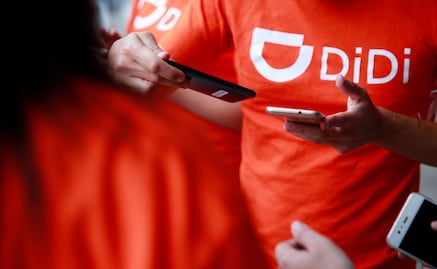Más Información

Narco “La Rana”, entre altar a la muerte, corridos de Los Rayos del Norte, drogas y armas doradas; EU difunde foto de como vivía

Sheinbaum ajusta horario de conferencia mañanera este 26 de febrero; se realizará desde Mazatlán, Sinaloa

Ellos son “La Rana” y “Aquiles”, hermanos Arzate-García, jefes del Cártel de Sinaloa; EU los busca por narcoterrorismo
The arrival of ride-hailing services such as Uber, Cabify, Didi and other apps in Mexico caused friction and confrontations with taxi drivers . In Mexico City , the strife has lasted for over six years but authorities have yet to establish fair competitive conditions.
In 2015 , as part of an initial regulation scheme , it was determined that the ride-hailing apps would contribute 1.5% of the cost of each trip for the Fund for Taxis, Mobility, and Pedestrians ; nevertheless, these resources are known for their opacity.
In 2019 , it was established that the ride-hailing companies should fulfill new requirements to operate in the city, including a special permit and the drivers will be required to obtain a new license .
None of these new requirements have satisfied thousands of taxi drivers . For this reason, thousands of taxi drivers demonstrated in the capital and in other cities yesterday, in order to demand a more strict regulation against the ride-hailing platforms .
Would a more strict regulation be the solution? It has been proven that harsh rules, high costs, and a lot of paperwork weren't enough to guarantee an efficient service and only promoted the creation of illegal taxis , and the rise of groups of taxi drivers linked to political groups ; also, users have become the victims of insecurity while riding taxis.
Companies such as Uber, Didi, and Cabify took advantage of these circumstances to offer a relatively safer and technologically updated service , although these apps have incurred in alleged abuses by unilaterally increasing the prices up to 100% when the demand reaches its peak or the traffic is intense.
In the dispute, the authorities will have to set clear rules for both parties. The ride-hailing apps took authorities by surprise, just as many other technological developments, who hadn't established regulations for them. It is also understandable that taxi drivers feel threatened.
In Mexico City , where there have been deficiencies in public transport for many years, the mobility market can accommodate different private service schemes . It is essential to stop thinking of transport as a gold mine for public finances and to focus on the priority : the citizen who requires transport services .
gm
Noticias según tus intereses
[Publicidad]
[Publicidad]












